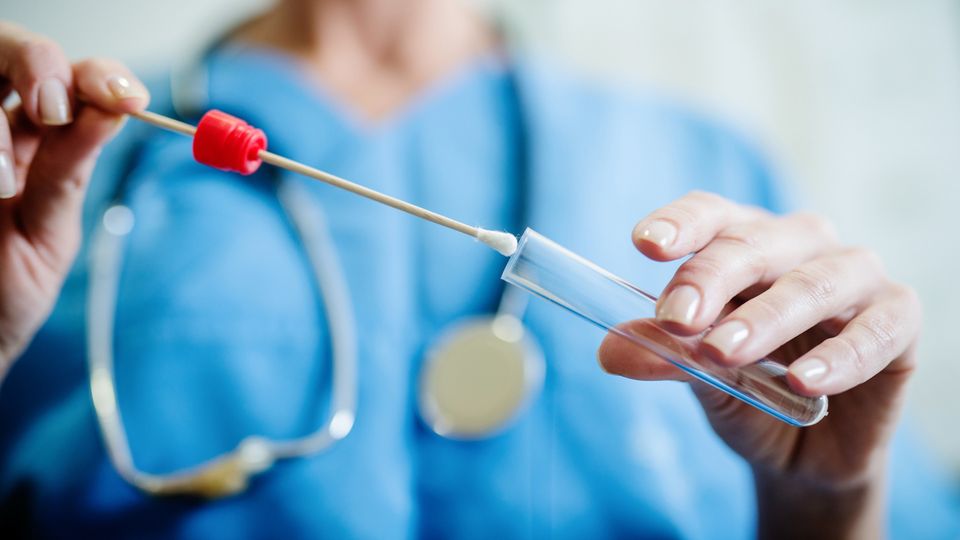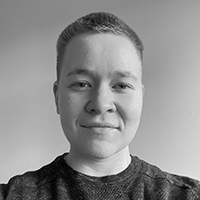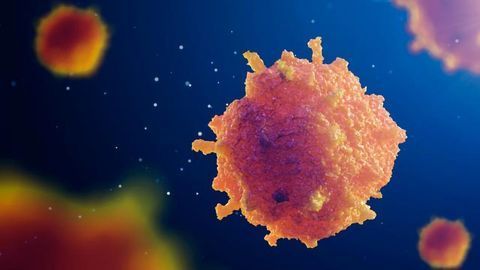Time Is of the Essence: Saliva-Based Test Could Detect Cancer Early
Novel saliva-based test could help avoid the invasive biopsies often required for cancer detection.

Complete the form below to unlock access to ALL audio articles.
Several highly glycosylated proteins are currently used as cancer biomarkers due to the involvement of glycans in tumorigenesis and metastasis. However, most of these antigens cannot be used alone in the diagnosis of cancer and so more invasive biopsies are required.
Ausel Cancer Innovation is developing a novel, saliva-based in vitro diagnostic designed to indicate the presence of cancer cells at the earliest stage of development without the need for invasive methods. Technology Networks spoke to Nick Ainslie, co-founder of Ausel, to find out more about the saliva-based diagnostic.
Kate Robinson (KR): How important is early cancer detection?
Nick Ainslie (NA): Early cancer detection is critical in positive health outcomes for patients. The earlier cancer can be detected the more effective treatments and management are.
In many cases, it isn’t until symptoms arise that any type of screening is performed, and this can be far too late for the most effective interventions.
KR: Can you discuss the science behind the saliva-based early cancer detection test?
NA: Ausel’s test is based on the analysis of metabolites present in saliva. These are present and found in certain concentrations when cancerous cells have developed in the body.
KR: How does this test differ from other cancer detection methods?
NA: Virtually all current cancer diagnostic tests require invasive sampling, like a blood draw or fecal collection. All of them require laboratory analysis to return results, with the current top cancer diagnostic tests taking over two weeks to send back results. Ausel requires neither; simply spit into the test tube, add reagents, mix and view the results immediately. No invasive sampling, lab analysis or delay when time is of the essence.
NA: The studies have shown how glycoprotein levels in saliva samples from patients with breast or lung cancer are differentially expressed compared to the healthy control.
In the first study, we hydrolyzed glycoproteins in saliva and quantified major glucosides using high-performance anion-exchange chromatography with pulsed-amperometric detection (HPAEC-PAD).
The findings of both studies were extremely positive, suggesting that the glucosides are very effective for both breast and lung cancer detection.
KR: Can you provide any information on the final clinical study?
NA: We are currently enrolling patients with breast and lung cancer in Italy. This cohort will be about 370 patients. Our chief medical officer, Dr. Prisco Piscitelli, is managing the trials on-site in Italy, along with our biostatistician and principal investigator. So far everything is going extremely well, and we are excited to bring our early cancer screening test to the world.
We are also running a stand-alone, parallel study with over 350 patients. In this study we are enrolling patients with as many types of cancer as possible to expand the scope beyond lung and breast cancers.
Our planned next targets are ovarian cancer, glioblastoma and pancreatic cancer. Ovarian cancer needs the correct identification of symptoms to guide the clinician to begin cancer screening. With some cancers like pancreatic or glioblastoma (a type of brain tumor) by the time symptoms arise, the tumor is increasingly difficult to treat or has metastasized; the five-year survival rates of these two cancers are 12% and 6.9%, respectively.
About the interviewee:
Nick Ainslie is a co-founder of Ausel Cancer Innovation.
Nick Ainslie was speaking to Kate Robinson, Assistant Editor for Technology Networks.



